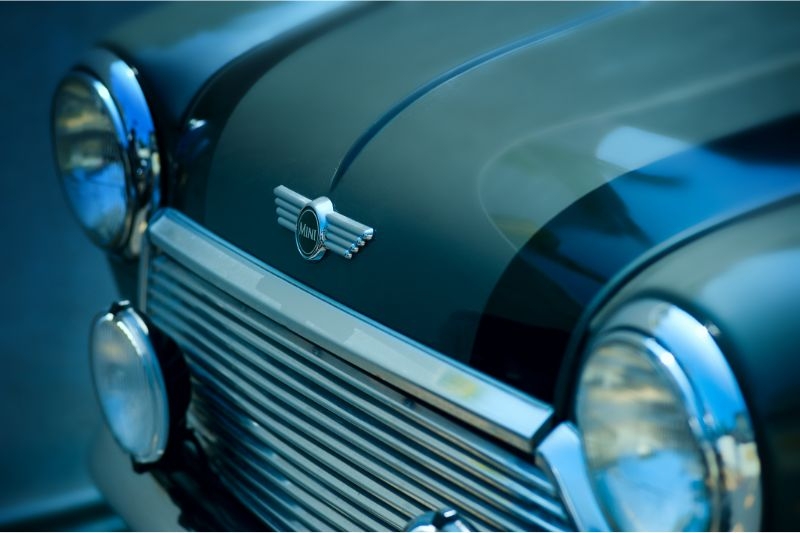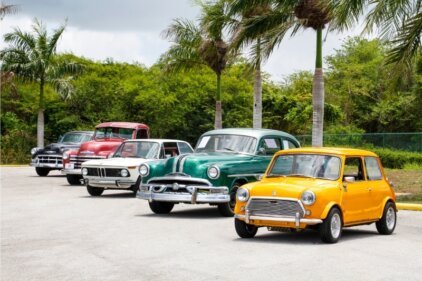Compact cars have become a popular choice among car enthusiasts due to their practicality, fuel efficiency, and affordability. These smaller vehicles, also known as mini cars, have carved a niche for themselves in the automotive industry. In this article, I will delve into the fascinating world of mini car brands, exploring their history, rise, key features, designs, advantages, and disadvantages. Join me on this journey as we uncover the powerhouse of compactness.
A Brief History of Mini Car Brands
The concept of mini cars dates back to the early 20th century when automakers sought to create smaller, more affordable vehicles for the masses. One of the pioneering mini car brands was the iconic British Mini, introduced by the British Motor Corporation (BMC) in 1959. The Mini quickly gained popularity for its compact size and innovative design, becoming an emblem of British culture.
Over the years, other mini car brands emerged, each with its own unique identity and contribution to the automotive industry. The Fiat 500, introduced in 1957, became an Italian icon, while the Volkswagen Beetle, launched in 1938, captured the hearts of millions worldwide. These mini car brands not only provided affordable transportation but also became symbols of style and individuality.
The Rise of Compact Cars in the Automotive Industry
Compact cars gained traction in the automotive industry as people began to value fuel efficiency and sustainability. With rising fuel prices and growing environmental concerns, mini car brands offered a practical solution. These vehicles consumed less fuel, emitted fewer greenhouse gases, and occupied less space on the road.
Furthermore, advancements in technology allowed mini car brands to incorporate features and specifications that rivaled larger vehicles. Manufacturers started equipping mini cars with state-of-the-art safety systems, advanced infotainment options, and efficient engines. This made compact cars an appealing choice for urban dwellers and those seeking a reliable mode of transportation.
Key Features and Specifications of Mini Car Brands
Mini car brands boast an array of impressive features and specifications, despite their compact size. Most mini cars offer ample interior space, allowing passengers to travel comfortably. Additionally, these vehicles are designed to maximize storage capacity, with foldable seats and clever storage compartments.
In terms of performance, mini car brands have come a long way. Many models now offer powerful engines that deliver excellent fuel efficiency, making them ideal for both city commuting and long-distance trips. Moreover, mini cars often incorporate advanced safety features, such as adaptive cruise control, lane-keeping assist, and automatic emergency braking, ensuring a safe driving experience.
Evolution of Mini Car Designs and Technologies
Mini car designs have evolved significantly over the years, reflecting changing trends and technological advancements. Early mini cars had a simplistic, boxy design, aimed primarily at providing basic transportation. However, as consumer demands evolved, mini car brands started prioritizing aesthetics and style.
Modern mini cars showcase sleek lines, aerodynamic profiles, and distinctive features that set them apart from their predecessors. Moreover, mini car brands have embraced the integration of advanced technologies, such as touch-screen infotainment systems, smartphone connectivity, and voice commands. These enhancements have transformed mini cars into sophisticated and connected vehicles.
Advantages and Disadvantages of Mini Car Brands
Mini car brands offer numerous advantages to their owners. Their compact size makes them incredibly maneuverable, allowing for easy parking and navigation in congested urban areas. Additionally, mini cars tend to be more fuel-efficient, resulting in cost savings for drivers. Furthermore, their smaller footprint means they have a lower environmental impact, contributing to a greener future.
However, mini car brands do have some limitations. Due to their size, they may not provide the same level of comfort and space as larger vehicles, particularly for taller individuals. Additionally, mini cars may have limited cargo capacity, which may be a drawback for those needing to transport larger items. Moreover, some mini car models may not offer the same level of power and acceleration as their larger counterparts.
Popular Mini Car Brands in the Market
The market is brimming with a wide range of mini car brands, catering to various preferences and budgets. Some of the most popular mini car brands include the timeless Mini Cooper, the stylish Fiat 500, the sporty Volkswagen Beetle, and the practical Honda Fit. These brands have captured the imagination of car enthusiasts and have a loyal following worldwide.
Each mini car brand brings its own unique blend of design, performance, and features. Whether you prioritize style, efficiency, or technology, there is a mini car brand out there to suit your needs and reflect your personality.
Comparison of Different Mini Car Models
To further understand the diverse offerings of mini car brands, let’s compare some of the leading models in the market. The Mini Cooper, Fiat 500, Volkswagen Beetle, and Honda Fit are all exceptional choices, but they differ in terms of design, performance, and price.
The Mini Cooper, known for its iconic design and sporty performance, offers a premium driving experience but comes at a higher price point. On the other hand, the Fiat 500 combines retro charm with affordability, making it a popular choice among budget-conscious buyers. The Volkswagen Beetle stands out with its unique beetle-inspired design and refined features. Lastly, the Honda Fit impresses with its spacious interior, versatility, and fuel efficiency, making it an excellent option for practicality.
Mini Car Brand Loyalty and Community
Mini car brands have fostered a strong sense of loyalty and community among their owners. These brands have successfully created a community of enthusiasts who share a passion for compact cars. Mini car clubs, events, and online forums provide platforms for mini car owners to connect, share experiences, and showcase their beloved vehicles.
Brand loyalty is prevalent among mini car owners, with many choosing to stick with their preferred brand when purchasing a new vehicle. The unique design, driving dynamics, and sense of belonging play a significant role in fostering this loyalty and creating a close-knit community.
The Future of Mini Car Brands
As we look to the future, mini car brands are poised to continue their growth and innovation. With increasing demand for sustainable transportation solutions, mini cars are well-positioned to play a key role. Manufacturers are investing in electric and hybrid technologies, incorporating them into mini car models to offer eco-friendly alternatives.
Furthermore, advancements in autonomous driving technology may revolutionize the mini car industry. Self-driving mini cars could provide efficient and convenient transportation solutions for urban areas, further solidifying their place in the automotive market.
Conclusion
In conclusion, mini car brands have revolutionized the automotive industry with their compactness, fuel efficiency, and affordability. From their humble beginnings to the present day, mini cars have evolved in design, features, and technology while retaining their charm and practicality. They offer a range of benefits, from easy maneuverability to reduced environmental impact.
Whether you’re drawn to the iconic Mini Cooper, the retro flair of the Fiat 500, or the sporty Volkswagen Beetle, mini car brands provide a diverse range of options to suit every taste. Their loyal communities and dedicated enthusiasts are a testament to their enduring popularity.
As we look ahead, mini car brands are poised to embrace sustainable technologies and continue their growth in the automotive market. So, if you’re in the market for a compact, practical, and stylish vehicle, consider exploring the world of mini car brands. Get behind the wheel and experience the powerhouse of compactness for yourself.





